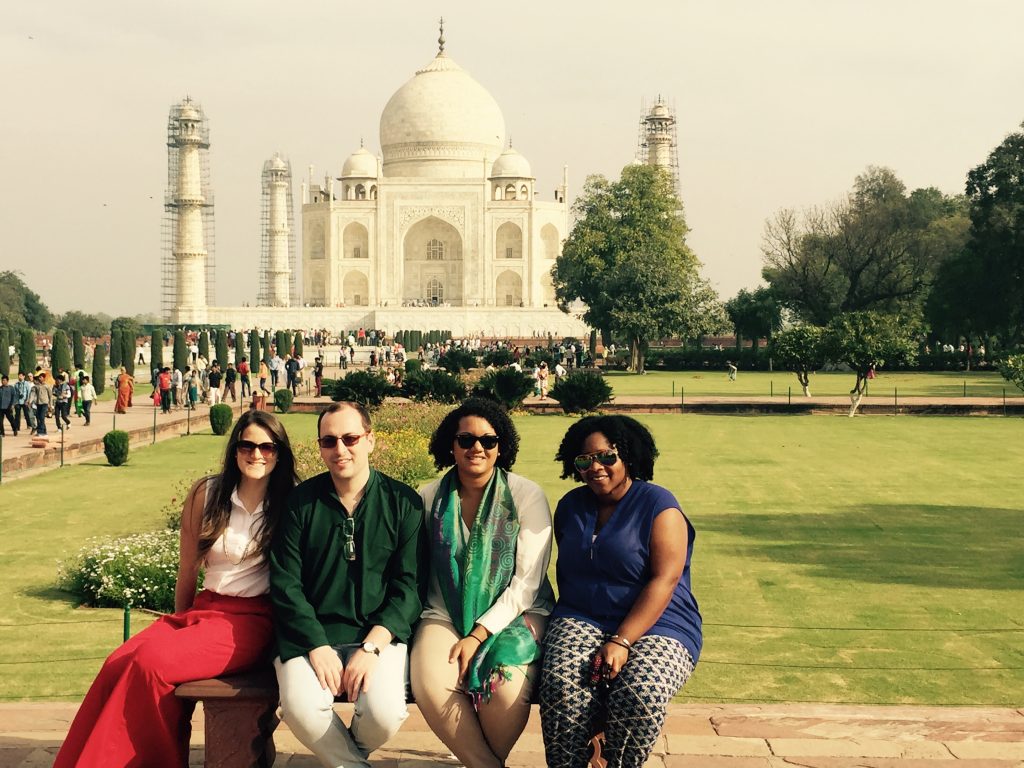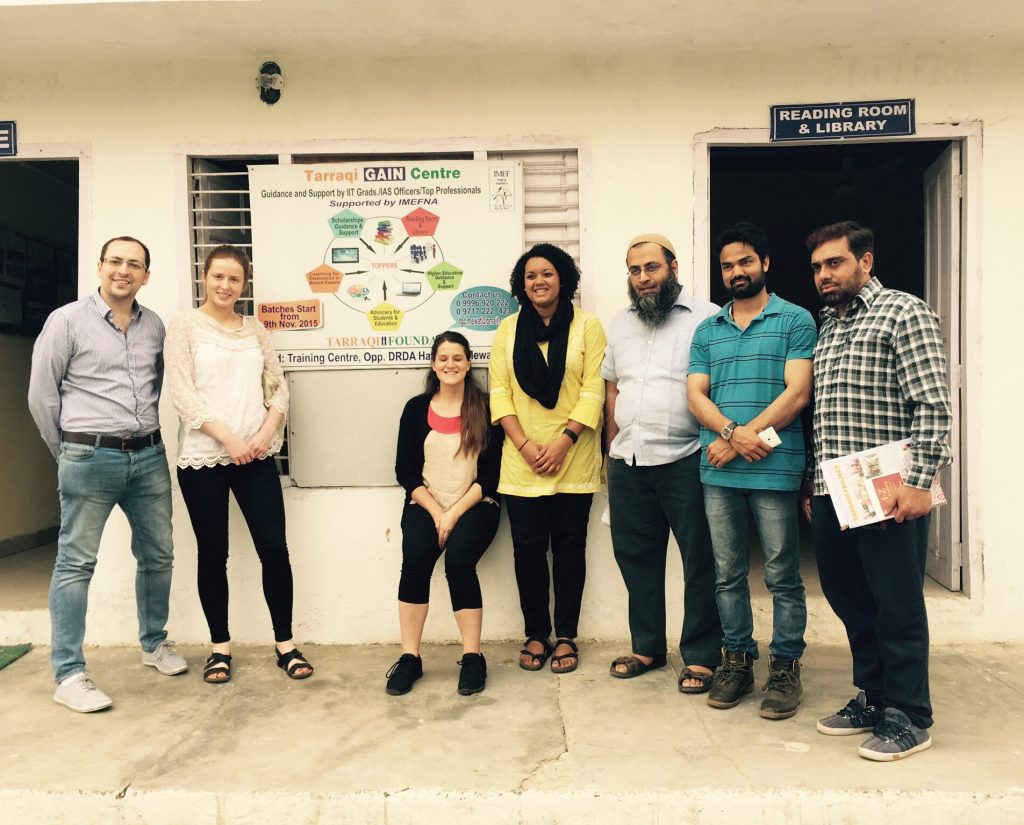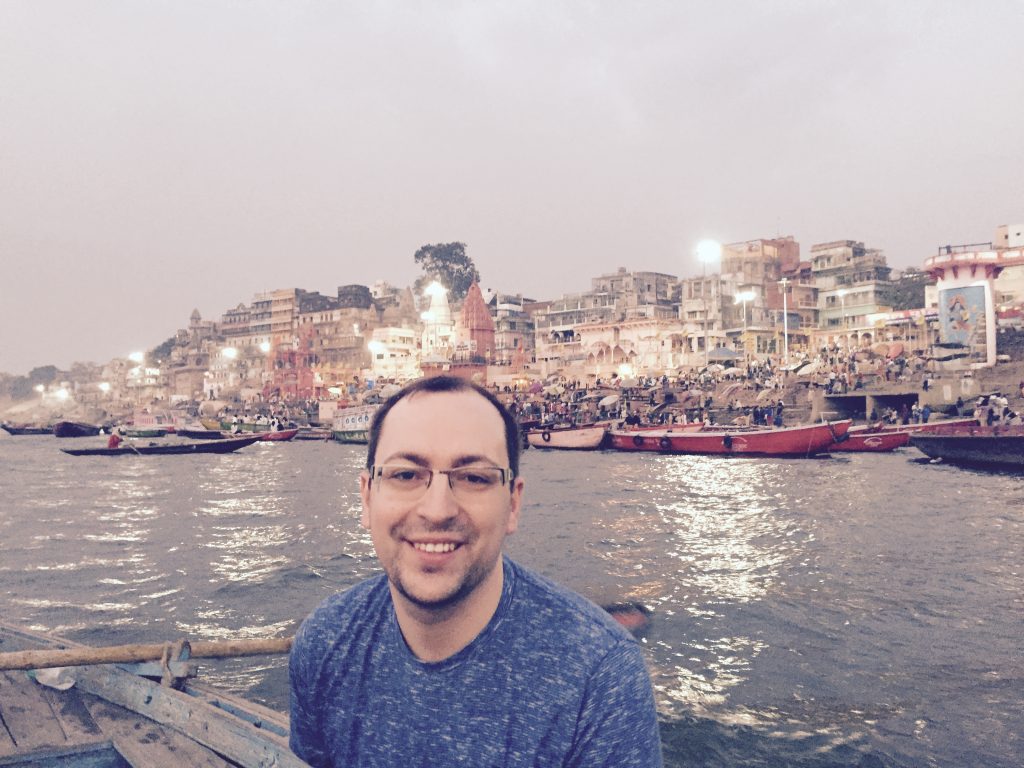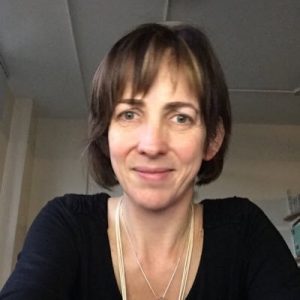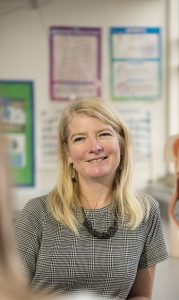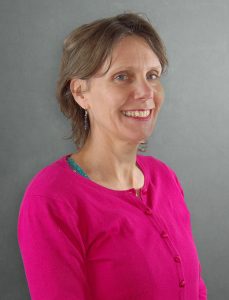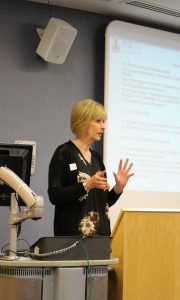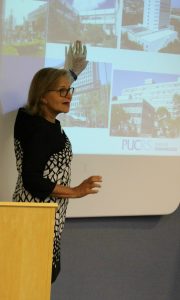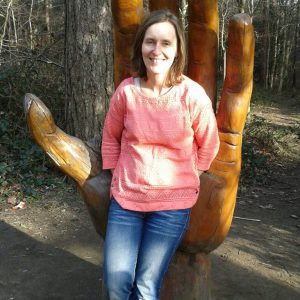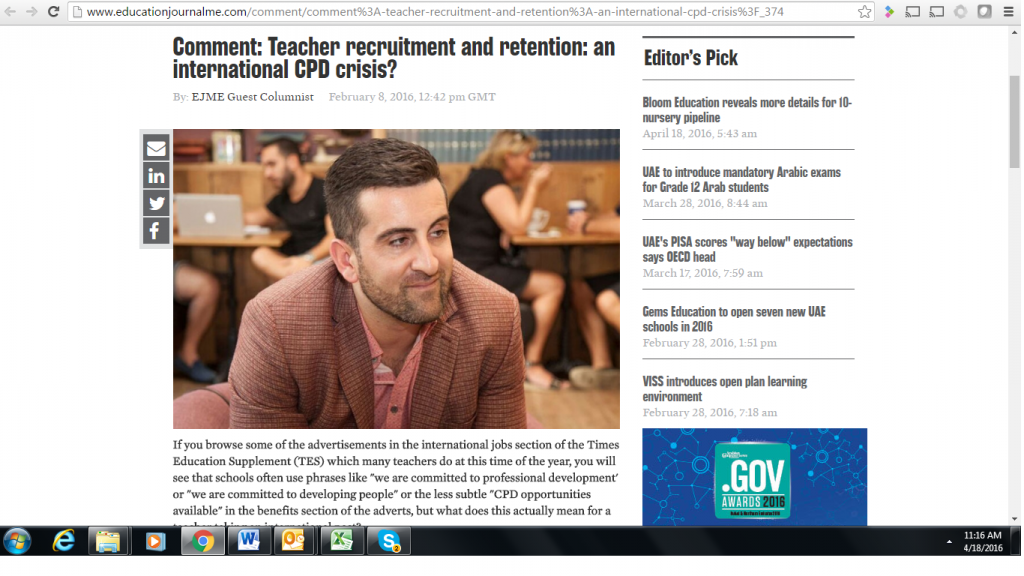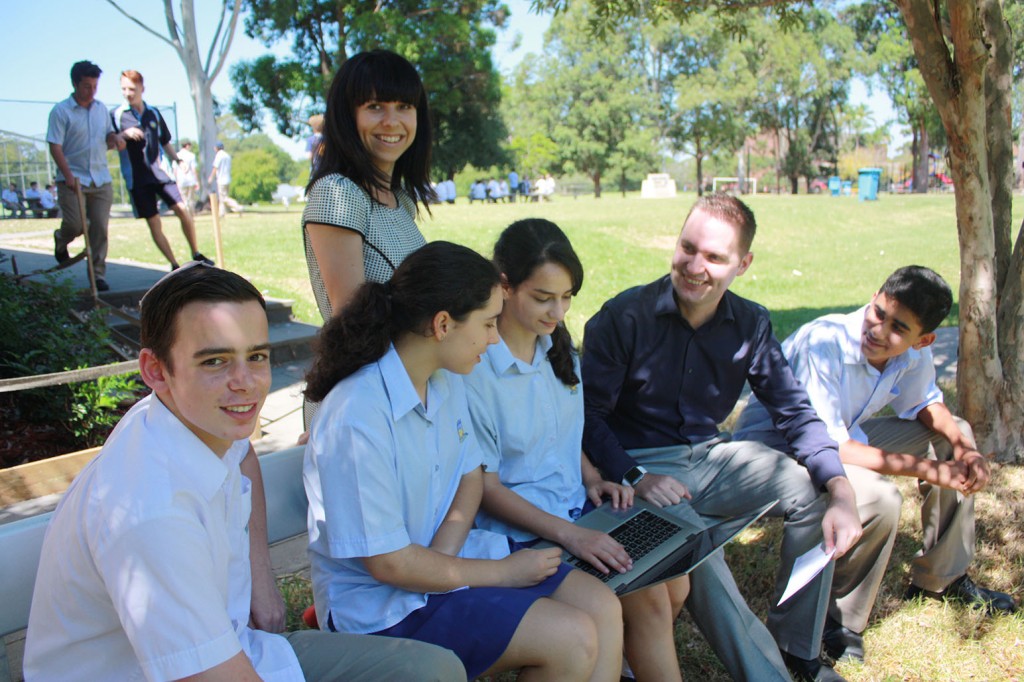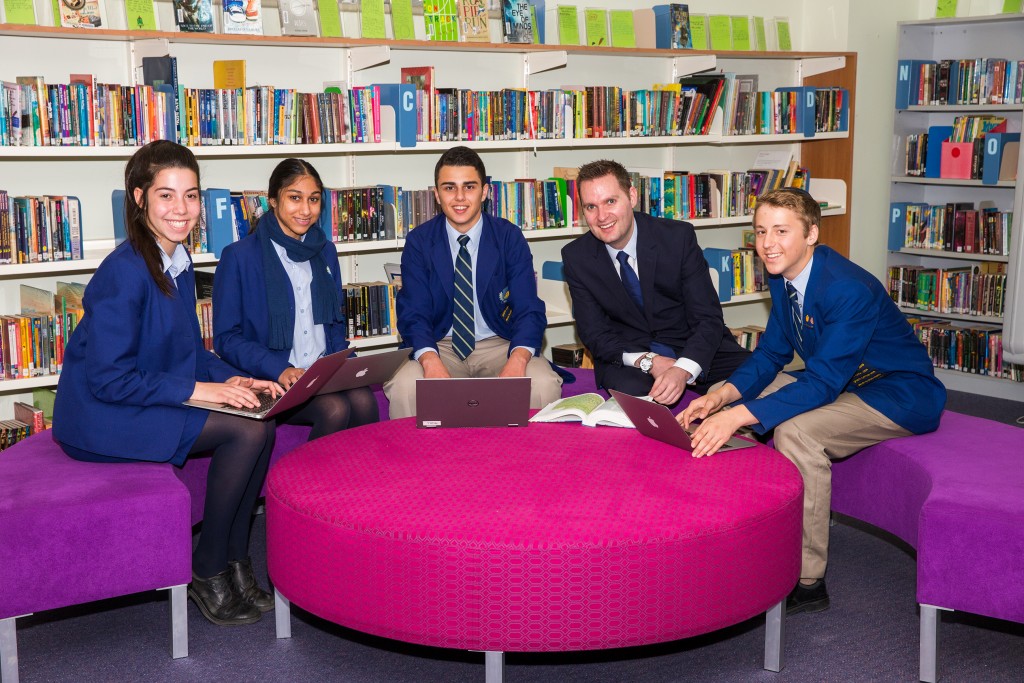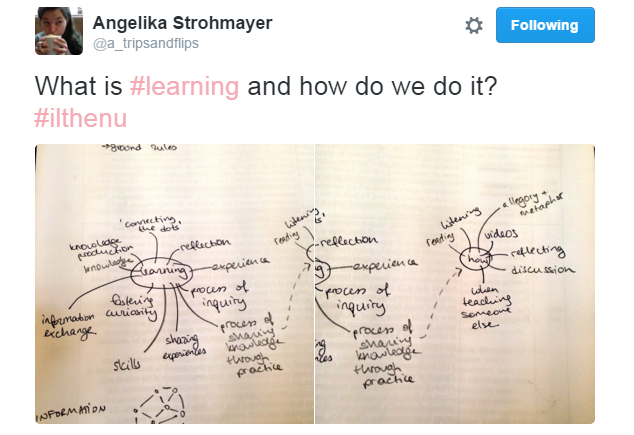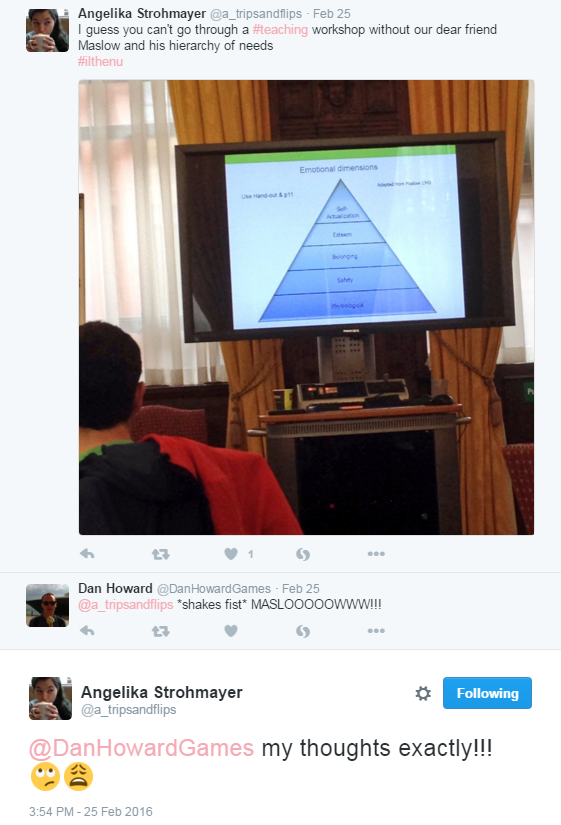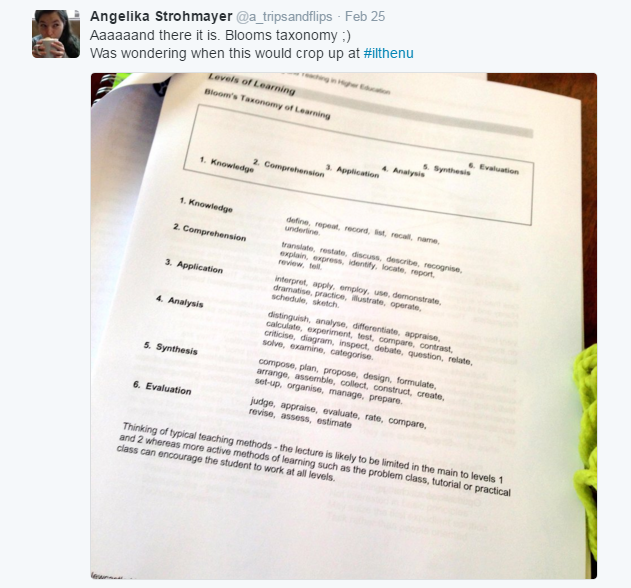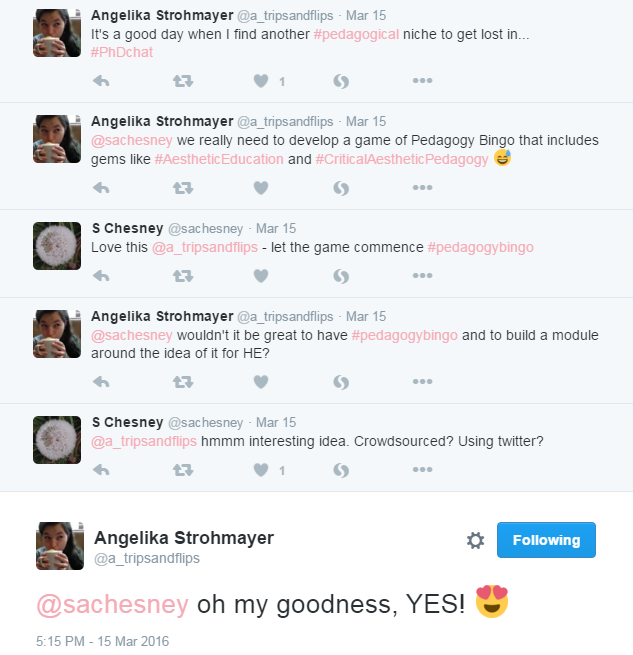Headlines
Coming soon: a new look for CfLaT. This is the last issue of the Newsletter that will look like this. In the summer, we will be launching our refreshed website and new CfLaT symbol. The Newsletter will be redesigned to match!
Anna Reid has been awarded a £2,000 ULTSEC innovation fund award to promote internationalisation, diversity and academic excellence through an extended induction programme.
Karen Laing recently travelled to Groningen in the Netherlands with NISR colleagues to attend the first meeting – in a usual venue – of the brand new European project ACCOMPLISSH. This project, with Liz Todd and NISR, aims to explore how academia, business, government and society members can work together to co-create research for maximum impact. Watch this space for more information as the project develops!
BERA/BELMAS Leadership SIG was in Newcastle last month. The link to the presentations and information about the event is here.
FaSMEd Consortium meeting in Cape Town, South Africa
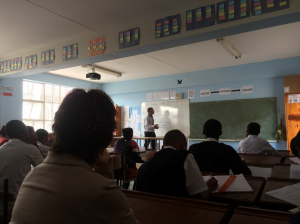
It is difficult to believe that the FaSMEd project is now two years in! In February 2016, we held our consortium meeting in Cape Town wonderfully hosted by our South African partners at AIMSSEC.
This was a significant meeting as we reflected on Work Packages and how we take things forward in the final year. In recent months, each partner has completed a huge body of work – our case studies – which are an essential and very fruitful source of data from our interventions. This was our first opportunity to share our case studies and initial findings across all partners. We dedicated significant time to discussing the analysis of our interventions and case studies.
We were also able to present our latest (work in progress) version of the web-based toolkit. This is being designed by a local Newcastle-based graphic design company called Ready Salted. This company has a great deal of experience of working with the University and so the process of producing the website has been very straightforward.
One of the highlights of the programme was our visits to some of the schools that our South African partners have been working with during the FaSMEd project. We visited three contrasting schools in the area. Each visit took place in the morning and then we returned to Muizenburg for our meetings. The school visits were both inspiring and thought-provoking, and illustrated the differences of the schools, and schooling, compared to some of our partner schools. Our inclusion of a South African partner has always been prompted by the fact that there are such obvious differences and that we can learn from them, and our visits really brought this to life for all.
COMMUNITY CURRICULUM – Free Event
Friday 8th July 2016, 8.45 am-3.30 pm, at the Herschel Learning Lab, Herschel Building, Newcastle University.
Ulrike Thomas and David Leat have been working on a project on Community Curriculum Making. It is being undertaken with six school-community partnerships, focuses on Project Based Learning, and is producing a school guide to the process. Brokerage is emerging as a critical factor. There is a free project event on July 8th at the university.
Click here to book your place
The value of Clubs
New research just released by CfLaT colleagues Liz Todd and Karen Laing explores the link between the activities children take part in outside school time and their attainment.
Findings point to an association between attending after school clubs and increased attainment for disadvantaged children. The research was conducted in collaboration with NatCen and ASK Research and has generated wide interest in the media. The full report can be accessed here
Readable summaries of the research can be accessed here.
For more information about the study, please contact Liz Todd
New links in China
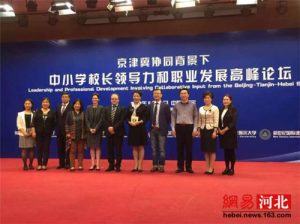
René Koglbauer and Anna Reid were guests of honour at a regional headteacher conference in Baoding, China at the beginning of May.
The conference was attended by approximately 300 Chinese Headteachers and government officials. René signed a Memorandum of Understanding between Baoding Education Bureau and Newcastle University on behalf of Professor Cholerton (PVC for Teaching and Learning). Click here to read the regional press.
University funding for three CfLaT researchers
Simon Gibbs, Pam Woolner and Rachel Lofthouse have each been awarded funds by the Pro-Vice Chancellor to pursue important lines of research over the next year.
Simon has been granted funds to develop his work on the effects on teachers’ beliefs of labels applied to children and their behaviour. The funds will allow him to work with colleagues in Finland and Sweden, build on an earlier study (Gibbs & Elliott, 2015) but with a more sophisticated design to establish if specific labels affect teachers’ perceptions of their efficacy. In the context of current debates about the nature and purpose of education, it is important to consider how are children described, but also to recognise that the effect of such descriptions may vary depending on linguistic, cultural and legislative factors.
This work is highly salient in the context of increasing prevalence of the use of diagnostic labels and major concerns about children’s ‘mental health. Many professionals are now worried that the use of such terminology and the quasi-medical labels will lead to further increases in referrals for psychiatric services and disable or de-skill school staff.
Pam’s funded project will examine how changing the built environment is understood and experienced – as it happens – in a local school that is be-ing rebuilt. The research will investigate the extent and nature of any impacts on attitudes and behaviour through a ‘before and after’ research design. Data from ‘before’ have now been collected and are being analysed. Comparison data will be collected next February. The next stage will centre on feedback to the school as they prepare for their new start in the new building in September. An intention of the research is to assist the school in maximising the benefits and minimising the stresses involved in managing the move.
Rachel is going to use her funding from the Pro-Vice Chancellor to sup-port her research project: ‘Practice development and workplace learning’. The purpose of this is to test the value of a new practice development led model for individual professional learning and institutional growth which recognizes the complex ecology of successful professional learning in and for the workplace. In order to further develop this work Rachel will conduct focus groups in a range of educational settings spanning early years to HE, and at different scales (individual schools or units, school alliances and a local authority).
Focus groups are underway, but Rachel would be keen to hear from colleagues in any educational settings who would like to participate in this research. Please contact her via email Rachel.Lofthouse@ncl.ac.uk
Pam visits school in South Tyrol
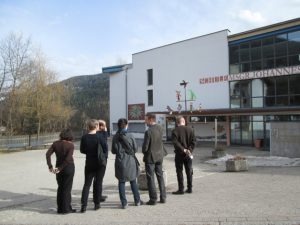
In April, Pam Woolner was invited to Bressanone / Brixen in the Italian South Tyrol to talk about, think about and visit school buildings.
Pam spoke about participation methods at a half-day symposium about school design held at the Freie Uni-versität Bozen. The following day, she was part of an interdisciplinary group of academics from Iceland, Portugal and Germany who visited some innovative schools. The schools, within a high mountain region and some with very small rolls, are part of a federation of primary and secondary schools. They follow Italian education policy but are German-medium schools within this bilingual region.
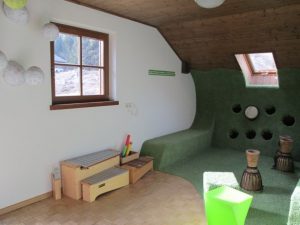
The federation principal, Josef Watschinger, led the tour of four schools and explained his ’pedagogic concept’. This vision, honed over the last 16 years, aims to develop autonomous learners taking responsibility for their learning within a supportive school community, intimately linked with the local community. Mr Watschinger has come to believe that the physical environment has a key part to play: he has been involved with designing a new school, but also with refitting older buildings to fit the federation’s educational values and needs.
Research Tea Timetable (Summer 2016)
Research teas aim to provide an informal forum for discursive examination of emerging research themes and concepts. Tea and cakes will be available from 3.45pm in the Centre base (KGVI 2.50), unless otherwise stated, with the session officially beginning at 4pm.
18th May: David Leat and Ulrike Thomas – Community Curriculum Making
15th June: Rachel Lofthouse – Practice development and workplace learning
13th July: Anna Reid – Supporting the final assessment of NPQ programmes
Further information about the research teas from laura.mazzolismith@newcastle.ac.uk
or from the Centre website.
Publications 2015/16
Chanfreau J, Tanner E, Callanan M, Laing K, Skipp A, and Todd L. (2016) Out
of school activities during primary school and KS2 attainment . ESRC Centre
for Longitudinal Studies Working Paper Series.
Barrow, W. (2015). ‘I think she’s learnt how to sort of let the class speak’:
Children’s perspectives on Philosophy for Children as participatory pedagogy.
Thinking Skills and Creativity, 17, 76-87.
Laing K, Mazzoli Smith L, Todd L. (2016) Educating urban youth: fair or foul?.
In: Davoudi,S; Bell,D, ed. Justice and Fairness in the City: A multidisciplinary
approach to ‘ordinary’ cities. Bristol, UK: Policy Press, pp.231-
248.
Leat D, Lofthouse R, and Reid A.(2015) Does teacher research fit with school
improvement?. Professional Development Today, 17(4), 50-58.
Leat, D., Lofthouse, R. and Thomas, U. (2015) How to … make the case for
Enquiry and Project Based Learning, Professional Development Today 18(2)
Leat D, Lofthouse R, and Thomas U. (2015) Implementing Enquiry and Project
Based Learning – Revolution or Evolution?. Education Today, 65(2), 12-17.
Leat, D. and Thomas, U. (2015) How to …plan Enquiry and Project Based
Learning, Professional Development Today 18(2)
Leat, D. and Lofthouse, R. (2015) How to … lead Enquiry and Project Based
Learning and the professional learning of EPBL teachers, Professional Development
Today, 18(2)
Leat, D. and Thomas, U. (2015) How to … develop brokerage for Enquiry and
Project Based Learning, Professional Development Today, 18(2)
Lofthouse R. (2015) Learning in landscapes of practice: boundaries, identity,
and knowledgeability in practice-based learning. International Journal of
Clinical Legal Education, 22(2).
Lofthouse R, Flanagan J, and Wigley B. (2015) A new model of collaborative
action research; theorising from inter-professional practice development.
Educational Action Research
Mazzoli Smith L, Laing K. (2016) Creating a transformational space through
narrative: Looked after young people tell their life stories. In: Formenti, L;
West, L, ed. Stories that Make a Difference: Exploring the collective, social
and political potential of narratives in adult education research. Milan: Pensa
Multimedia, 2016, pp.247-255.
Mazzoli Smith L and Campbell RJ. (2016) So-called Giftedness and Teacher
Education: Issues of Equity and Inclusion. Teachers and Teaching , 22(2).
Melville, A., Laing, K. and Stephen, F. (2015) Multi-agency approaches to resolving
family law problems: Can lawyers be involved? In: Eekelaar, J. and
Maclean, M. ed. Delivering Family Justice in Late Modern Society, Bloomsbury.
Moxham B, McHanwell S, Plaisant O, Pais D. (2015) A core syllabus for the
teaching of neuroanatomy to medical students. Clinical Anatomy. 28(6):706-
16.
Robson, S. (2015) Internationalisation of the curriculum: meanings, motives
and methods. Journal of Perspectives in Applied Academic Practice. 3 (3)
Smith C, Finn GM, Stewart J, McHanwell S. (2016) Anatomical Society core
regional anatomy syllabus for undergraduate medicine: the Delphi process.
Journal of Anatomy, 228(1), 2-14.
Smith C, Finn GM, Stewart J, Atkinson M, Davies DC, Dyball R, Morris J, Ockleford
C, Parkin I, Standring S, Whiten S, Wilton J, McHanwell S. (2016)The
Anatomical Society core regional anatomy syllabus for undergraduate medicine.
Journal of Anatomy , 228(1), 15-23.
Smith CF, Finn GM, Stewart J, Lee TC, Gillingwater TH, McHanwell S. (2016) A
new core gross anatomy syllabus for medicine. Anatomical Sciences Education,
9(2), 209-210.
Woolner, P. (2016) The school in the city. In S. Davoudi and D. Bell eds. Justice
and Fairness in the City. Bristol: Policy Press, pp. 49-68
Woolner, P and Tiplady, L. (2016) Adapting School Premises as Part of a Complex
Pedagogical Change Programme. In: Stadler-Altmann,U, ed. (English)
Learning Environment. Educational and Architectual Views on Schoolbuildings
and Classrooms. (German) Lernumgebungen. Erziehungswissenschaftliche
und architekturkritische Perspektiven auf Schulgebäude und Klassenzimmer.
Opladen/Berlin/Toronto: Barbara Budrich, pp.69-81.
Wright D, Clark J, Tiplady L. (2015) Making learning visible in mathematics with
technology. Mathematics Teaching, 249, 30-36.
Wright D, Clark J, Tiplady L. (2015) Raising achievement through formative
assessment in science and mathematics education (FaSMEd) British Society
for Research into Learning Mathematics 35 (2).
BERA blog update
CfLaT members are continuing to make contributions to the British Educational
Research Association’s multi-authored blog. Follow the links below to read
the latest:
Jill Clark
Simon Gibbs:
Rachel Lofthouse:
Laura Mazzoli Smith:
BERA blog posts are welcomed from practitioners and researchers in education.
If you are interested in writing between 500-750 words contact Rachel.
Lofthouse@ncl.ac.uk as she is one of the blog editors.





